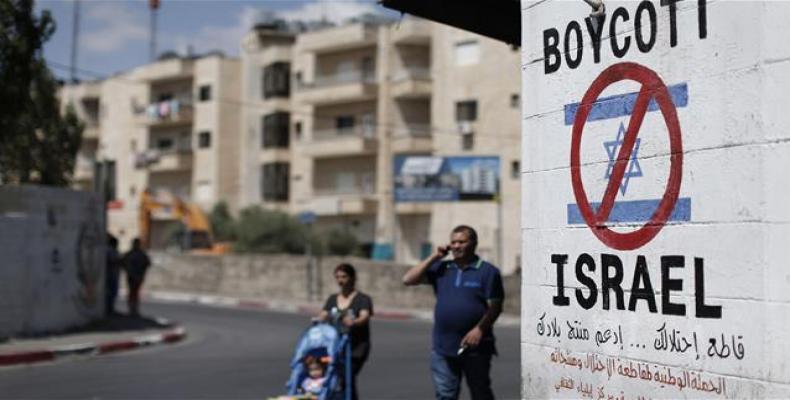United Nations, February 13 (RHC)-- The United Nations human rights office has issued a report on companies it said have business ties to illegal Israeli settlements in the occupied West Bank, a long-delayed move that has already drawn the ire of Israel and its main ally, the United States.
In a statement on Wednesday, the UN body said it identified 112 business entities which it has reasonable grounds to conclude have ties with Israeli settlements -- 94 domiciled in Israel and 18 in six other countries.
It identified companies listed in the US, France, the Netherlands, Luxembourg, Thailand and the United Kingdom. Among these was the US-based home-sharing company, Airbnb.
In its report, the UN office said the companies' activities "raised particular human rights concerns."
"I am conscious this issue has been, and will continue to be, highly contentious," UN High Commissioner for Human Rights Michelle Bachelet said. But she added that the findings had been subject to an "extensive and meticulous review process" and the report "reflects the serious consideration that has been given to this unprecedented and highly complex mandate."
Her office said the report "does not provide a legal characterisation of the activities in question, or of business enterprises' involvement in them."
Airbnb said in November 2018 that it would remove listings in Israeli settlements in the occupied West Bank. But it said the following April that it would not implement the planned delisting and would donate proceeds from any bookings in the territory to international humanitarian aid organisations.
Other companies include travel sites Expedia and TripAdvisor, tech giant Motorola, consumer food maker General Mills and construction and infrastructure companies including France's Egis Rail and British company, JC Bamford Excavators.
Commenting on the report, Palestinian Foreign Minister Riyad al-Maliki hailed the decision, calling a "victory for international law." "Publishing this list of companies and entities operating in the settlements is a victory for international law and diplomatic efforts," Malki said in a statement.
He urged UN member states and the UN Human Rights Council to "issue recommendations and instructions to these companies to end their work immediately with the settlements."
The UN report comes in response to a 2016 UNHRC resolution calling for a "database for all businesses engaged in specific activities related to Israeli settlements in the occupied Palestinian territory." The rights council, which is made up of 47 governments, had never before requested such a list scrutinising corporate activities.
The UN agency said compiling the database had been a "complex process" involving "widespread discussions" with states, think-tanks, academics and the companies themselves.
Palestinian Prime Minister Mohammed Shtayyeh threatened to take international legal action against the companies named in the report, demanding they "immediately close their headquarters and branches inside illegal Israeli settlements because their presence contradicts international and UN resolutions."
"We will pursue companies listed in the report legally through international legal institutions and in courts in their countries for taking part in human rights violations in Palestine," Shtayyeh said in a Facebook post. He added Palestinians would also "demand compensation" for what he called "their use of our occupied land illegally."
Human Rights Watch's deputy advocacy chief Bruno Stagno welcomed the publication of the database. This "should put all companies on notice: to do business with illegal settlements is to aid in the commission of war crimes," he said.
Al Jazeera's Stephanie Dekker, reporting from West Jerusalem, said the report highlights the international community's stance, that these settlements in the West Bank are "illegal under international law." "It doesn't have any legality in terms of implementing consequences for these companies, but it does open them to the potential for any Boycott Divestment and Sanctions (BDS) movement," she said.
Wednesday's report, however, stressed that companies do not have to remain on the database forever. "Where there are reasonable grounds to believe that ... the business enterprise is ceasing or no longer involved in the relevant activity, the business enterprise would be removed from the database," it said.
The report recommended that the database be updated annually, and urged the Human Rights Council to appoint a group of independent experts to handle this task.


